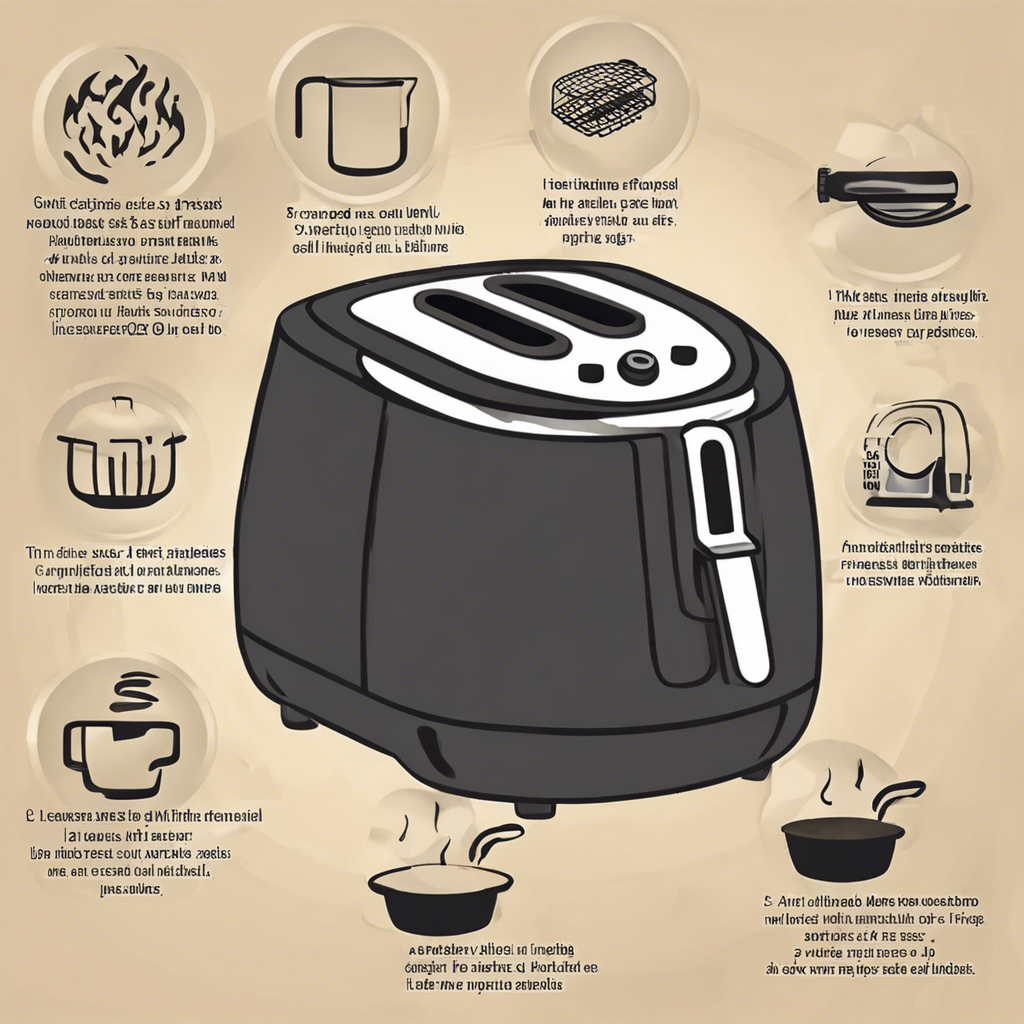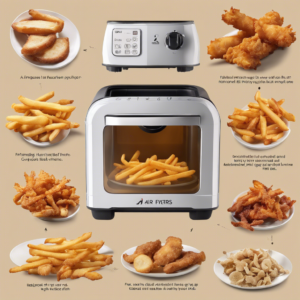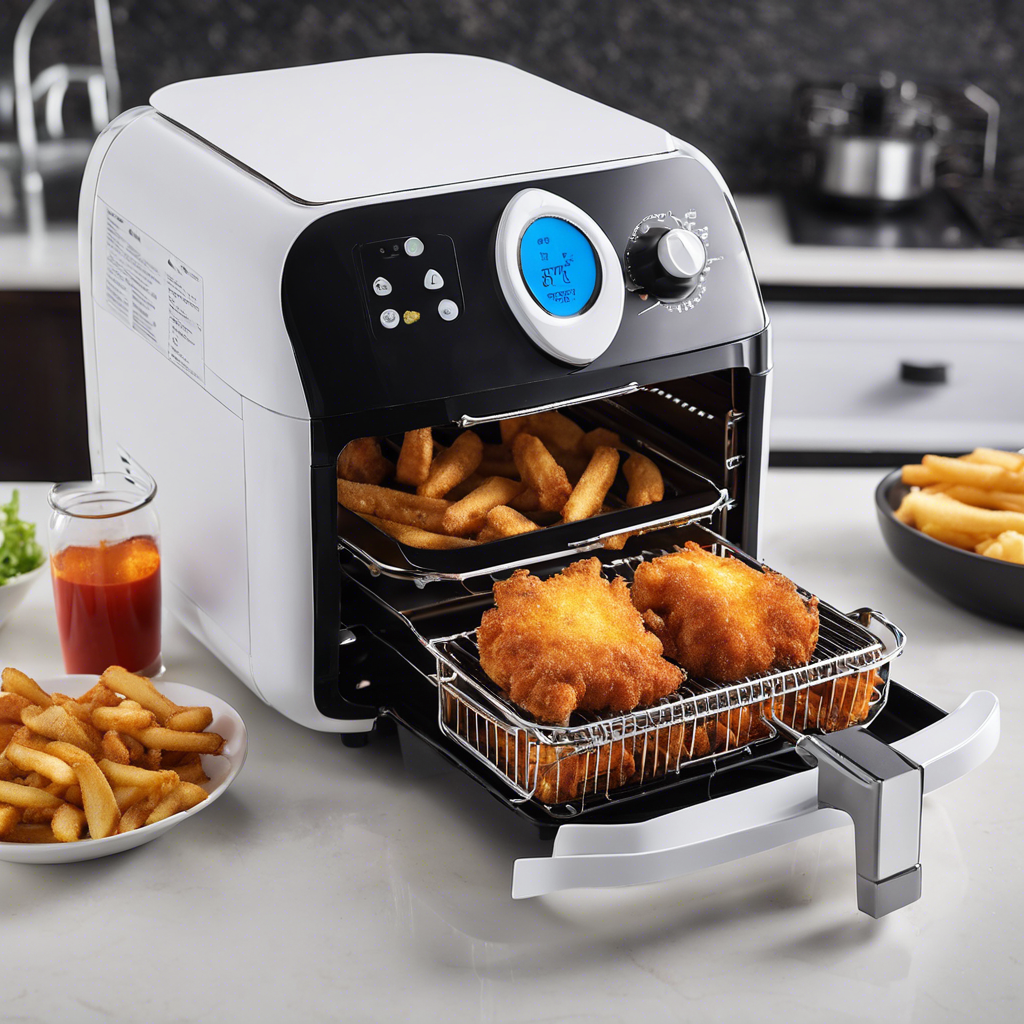Last Updated on August 19, 2024 by MOe
Air fryers have recently been the trend in kitchen appliances because they can offer less oily foods but still provide that crispy feel. As interest surges in their use, so are the concerns for safety. This blog post provides an answer to the question: Are air fryers toxic? We will discuss materials used for these appliances, possible harmful chemical releases, and the impact of air frying on food safety.
At the end of the post, you should have a clearer idea of whether an air fryer is a healthy addition to your kitchen.
Introduction
Air Fryers seek to offer a much healthier alternative to traditional deep-frying by using hot air and bringing on that crispy feel without the barrels of oil required by conventional frying methods. Quick to become an essential appliance in many home cooks’ eyes, they help to reduce fat intake while making meal prep quick and effortless. In contrast to its popularity reflected in people’s attention, the safety aspect of air fryers has been surrounded by several concerned voices. So, are air fryers toxic?
In this post, we’ll be looking at various aspects of air fryer safety to help you make your decision.

1. Materials and Non-Stick Coatings
One of the major questions associated with the safety of air fryers is the kind of material used in making them. A majority of air fryers come with a non-stick coating, from which many are made of polytetrafluoroethylene (PTFE), commonly brand named as Teflon. Historically, PTFE coatings have been associated with the possible toxic fumes generated whenever they are subjected to overheating.
- – PTFE and Teflon: PTFE stands for a synthetic polymer that allows not to stick food on the air fryer, hence giving it a non-stick property, and eases cleaning after use. However, whenever the PTFE coatings are heated above 260°C, they can start to decompose and give out fumes that might eventually give some humans temporary symptoms resembling flu, which is also referred to as “Teflon flu.”
- Modern Safety Standards: Very few modern air fryers are designed to work at the extremely high temperatures needed to degrade PTFE in the first place. Most manufacturers have increased their safety standards so as not to allow harmful fumes to come off their products during regular use. If you’re concerned about non-stick coating, then look for air fryers labelled as PTFE-free or with ceramic coatings.
While older PTFE and Teflon concerns are valid, most of the concerns get mitigated by new manufacturing and enhancements made toward better safety. However, it’s always a good idea to follow the manufacturer’s recommendations and avoid overheating your air fryer.
2. Acrylamide Formation
Acrylamide is a chemical compound that normally forms in a lot of food naturally when as the cooking process reaches really high temperatures. This substance was classified to be probably carcinogenic to humans by the International Agency for Research on Cancer. Since air fryers cook at enormously high temperatures, how can one avoid wondering whether or not they make acrylamide?.
High Temperature Cooking: Air fryers cook the food by circulating hot air of temperatures in the range of 180°C to 200°C or 356°F to 392°F. These are comparable to conventional frying and baking temperatures, which are prone to acrylamide formation.
– Acrylamide Mitigation: There is practically no research specifically done on acrylamide formation in air fryers. However, some general guidelines indicate that soaking potatoes before cooking and avoiding excessive browning helps in reducing acrylamide. Air fryers are pretty recent inventions, so the impact may differ from the conventional way it is being cooked. Apply safer cooking methods to minimize risks as much as possible.
While frying in a hot air fryer can presumably cause acrylamide to form, good cooking practices bring about minimal formation. Being aware of what you do to your food will surely give you the benefits of air frying without exposing you to a lot of acrylamide.
3. Food Safety and Cooking Evenness
Food safety is a very big deal for every cook, especially making sure that food is well-cooked to not contain harmful bacteria. An air fryer most of the time proves to be a very helpful equipment option in achieving proper food safety because it cooks fast and evenly.
Even Cooking: Basically, air fryers can provide uniformity of cooking due to the high circulation of air. This may assist in even cooking, which is quintessential; for instance, food has to be heated uniformly to assure that it has reached adequate internal temperatures in order to be considered safe for consumption. Poultry has to be heated to an internal temperature of 75 °C (165°F) to be considered safe for consumption.
Using a Food Thermometer: Air fryers are very powerful; however, it is best to use a food thermometer and check that cooked food has reached the recommended internal temperature. This is particularly important for avoiding risks related to foodborne illness due to undercooked meats and poultry. Even though most air fryers would cook your food evenly, what holds paramount importance for screws and food safety is proper cooking techniques. This goes well with useful tools like a food thermometer to ensure internal temperatures are reached. This ensures the safe consumption of healthy meals.
4. Cleaning up and Maintenance
Proper cleaning and maintenance of your air fryer will keep it safe to use for a longer time. Indeed, residues or damage to the appliance will provide poor quality and be a safety concern with food in the long run.
– Non-Stick Coating Care: With any cleaning, make sure to only use non-abrasive cleaning tools and mild detergents so as not to damage the non-stick coating. Do not use any metal utensils or harsh scrubbing tools that will scratch/damage the coating.
– Inspection Regularly: Do inspect your air fryer regularly for any signs of wear, such as peeling nonstick surfaces or parts that are not working. Address any other issue with immediate effect in avoiding potential problems. In conclusion, cleaning the air fryer properly and regular maintenance should be done in order to keep it working and to possibly remain a safe appliance for cooking.
non toxic air fryer
The non-toxic element may be important in your considerations when buying an air fryer. A non-toxic air fryer assures there are no health-hidden chemicals released from the machines to ensure the purity of whatever food is cooked within. These air fryers sometimes come with plastics free from BPA and, at times, PFAS-, PFOA-free non-stick coatings that make them safe from some harmful chemicals.
By investing in a non-toxic air fryer, you can enjoy crispy, delicious results when air frying with peace of mind, knowing that all your cooking appliances are safe for you and kind to the environment.

Conclusion
While answering the question, are air fryers toxic, it is evident that although there are some concerns regarding the materials used in air fryers and their potential to form acrylamide, modern air fryers have been constructed with safety in mind. You can enjoy all the many benefits associated with air frying while keeping potential health risks low by choosing high-quality products, following the guidelines Issued by their manufacturers, and using good cooking principles. Has anyone of you used an air fryer, or are you personally interested in owning one?
Consider this a chance to write your opinion in the comment section below. We would really love to hear your response and discuss with you any questions or concerns about air fryers.

